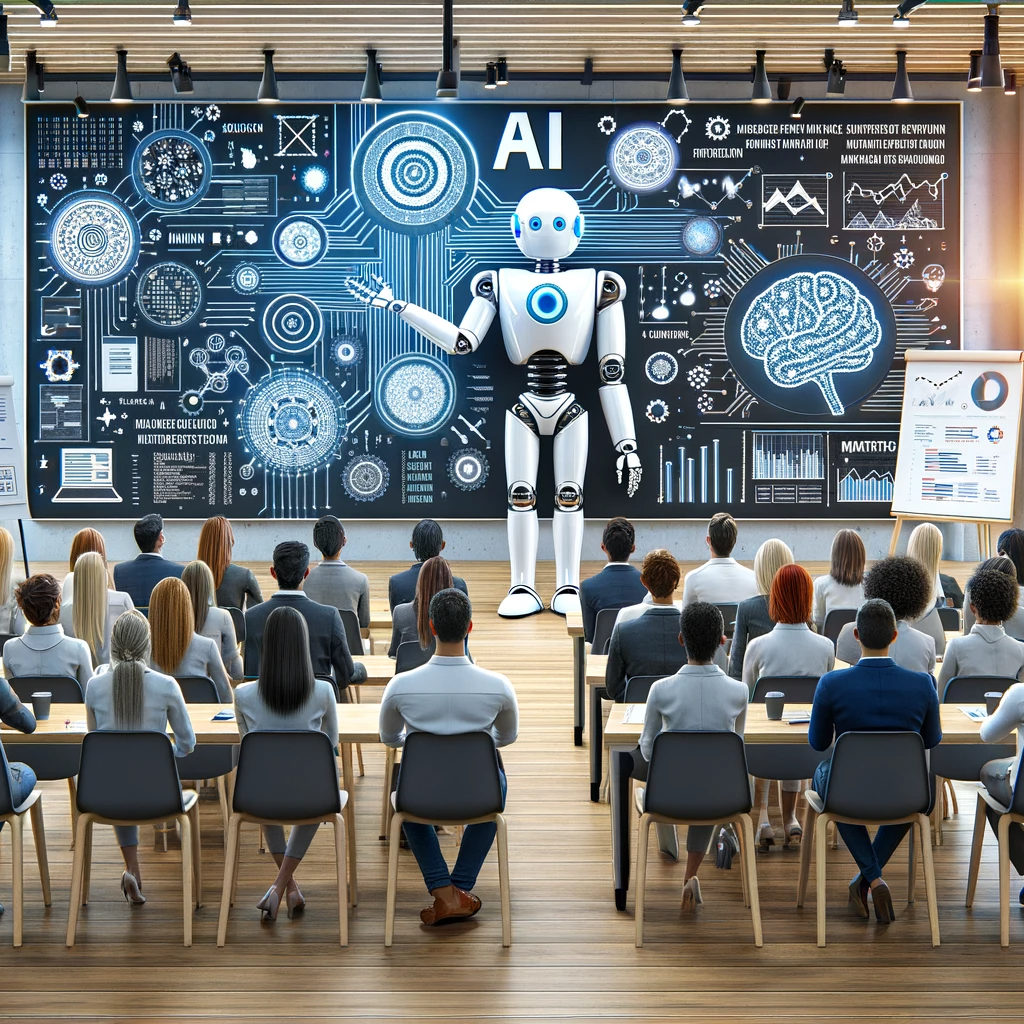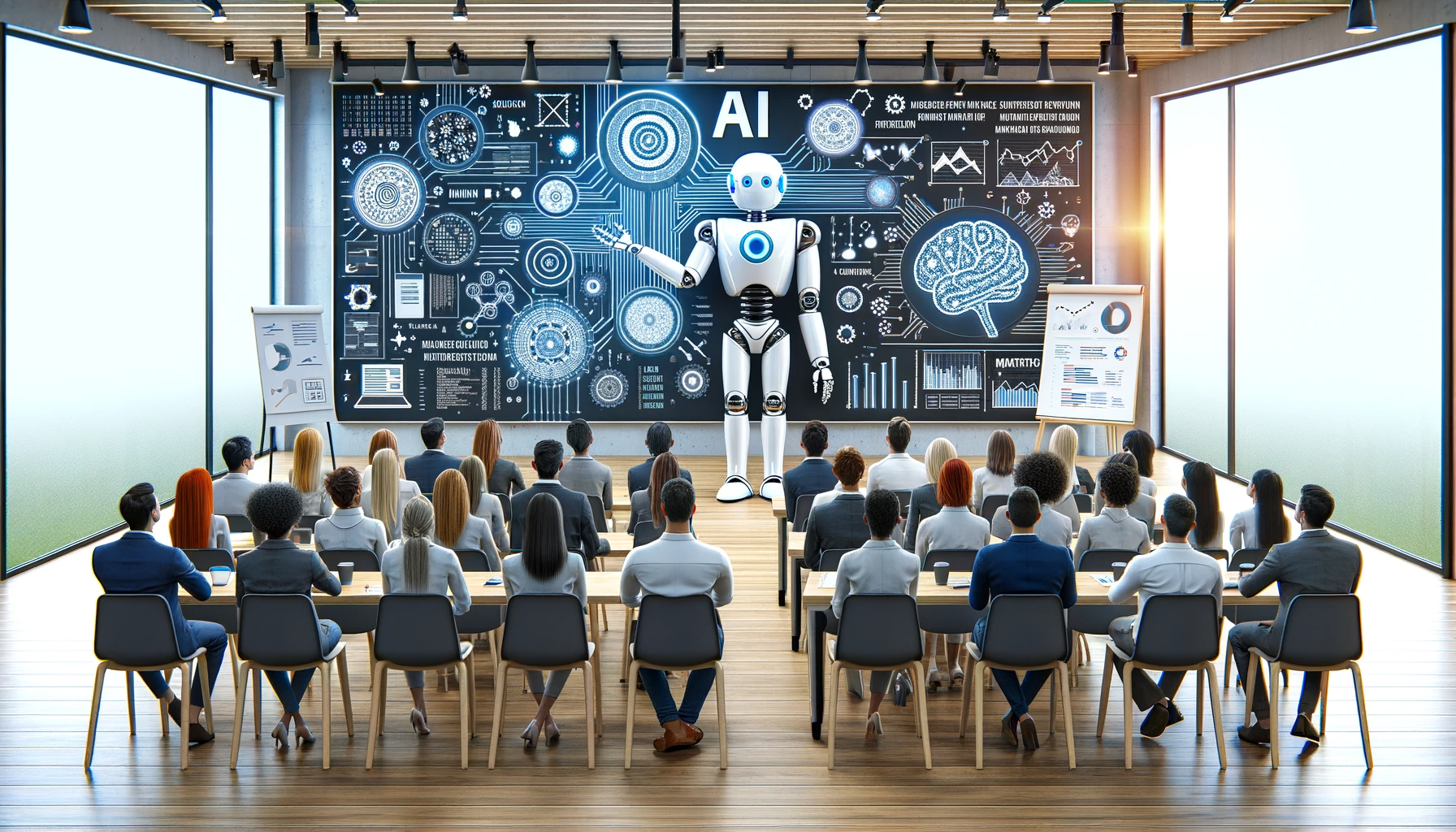Introduction
Artificial Intelligence (AI) has become a buzzword in the world of marketing, and for good reason. It has the potential to revolutionize the way businesses interact with customers, analyze data, and make informed decisions. However, for many marketers, AI remains a complex and enigmatic concept. In this blog, we will demystify AI and provide a simplified explanation tailored specifically for marketers.

What is AI?
At its core, AI refers to the ability of machines or computer programs to perform tasks that typically require human intelligence. These tasks include learning from data, recognizing patterns, making decisions, and solving problems. AI systems are designed to mimic human cognitive functions, such as perception, reasoning, and decision-making.
Types of AI
AI can be categorized into two main types:
- Narrow or Weak AI: This type of AI is designed for a specific task or set of tasks. It excels in performing these tasks but lacks the ability to perform tasks outside its designated scope. Examples of narrow AI include chatbots, virtual assistants like Siri or Alexa, and recommendation systems used by streaming platforms like Netflix.
- General or Strong AI: General AI, also known as artificial general intelligence (AGI), possesses human-like intelligence and can perform a wide range of tasks, just like a human. AGI is still a theoretical concept and does not yet exist in reality. Researchers are working towards achieving AGI, but we are not there yet.
How AI Works
AI systems rely on data and algorithms to function. Here’s a simplified breakdown of how AI works:
- Data Collection: AI systems require a large amount of data to learn and make predictions or decisions. This data can be structured (organized in a database) or unstructured (like text, images, or audio).
- Data Preprocessing: Raw data is often messy and needs to be cleaned and prepared for analysis. Data preprocessing involves tasks like cleaning, normalization, and feature extraction.
- Algorithm Training: AI algorithms are trained on the preprocessed data. During training, the algorithm learns patterns and relationships in the data.
- Inference or Prediction: Once trained, the AI system can make predictions or decisions based on new, unseen data. For example, a recommendation system can suggest products to a customer based on their browsing history.
AI in Marketing
Now, let’s explore how AI is making waves in the field of marketing:
Personalization
One of the most significant impacts of AI in marketing is personalization. AI algorithms can analyze customer data to understand individual preferences and behavior. This enables marketers to deliver highly targeted and personalized content and recommendations to each customer. For example, when you receive product recommendations on an e-commerce site, AI is at work behind the scenes, analyzing your past interactions and those of similar customers to suggest products you’re likely to be interested in.
Chatbots and Customer Support
AI-powered chatbots have become a common sight on websites and messaging platforms. These chatbots use natural language processing (NLP) algorithms to understand and respond to customer inquiries. They can provide instant support, answer frequently asked questions, and even assist in making purchases. Chatbots not only improve customer service but also free up human agents to focus on more complex tasks.
Predictive Analytics
AI excels in predictive analytics, which involves forecasting future trends and outcomes based on historical data. Marketers can use AI to predict customer behavior, demand for products, and even the success of marketing campaigns. By leveraging these predictions, businesses can make data-driven decisions and allocate resources more effectively.
Content Generation
AI can also assist marketers in content generation. Natural language generation (NLG) algorithms can automatically create written content, such as product descriptions, blog posts, and even news articles. While AI-generated content may not replace human creativity entirely, it can be a valuable tool for generating large volumes of content quickly.
Challenges and Considerations
While AI offers immense potential for marketers, it comes with its set of challenges and considerations:
Data Privacy and Ethics
Collecting and analyzing customer data for personalization raises important questions about data privacy and ethics. Marketers must ensure that they handle customer data responsibly and in compliance with regulations like GDPR.
Quality of Data
AI’s effectiveness depends on the quality of the data it is trained on. Dirty or biased data can lead to inaccurate predictions and decisions. Marketers need to invest in data quality and diversity to improve AI performance.
Integration and Training
Implementing AI systems in marketing requires integration with existing tools and platforms. Additionally, AI models need continuous training and fine-tuning to adapt to changing market conditions.
Customer Acceptance
Not all customers may be comfortable with AI-driven interactions. Marketers should offer alternatives for those who prefer human assistance and be transparent about the use of AI.
The Future of AI in Marketing
As AI technology continues to evolve, its role in marketing will expand. Marketers should stay informed about the latest advancements in AI and consider how they can leverage AI to enhance customer experiences, drive efficiency, and gain a competitive edge.
AI-Driven Advertising
AI has brought a revolution to the world of advertising. Here’s how: Programmatic Advertising
Programmatic advertising involves using AI algorithms to automate the buying of ads and targeting them to specific audiences in real-time. This means that every ad impression can be tailored to an individual user’s preferences and behavior. Marketers can set their parameters, and AI takes care of the rest. This automation not only saves time but also ensures that ads reach the right people at the right time, maximizing the chances of conversion.
Ad Creativity
AI is not limited to just ad placement; it can also assist in ad creation. For example, AI can generate ad copy, design visuals, and even suggest the best-performing ad formats based on historical data. This streamlines the creative process and helps marketers create ads that resonate with their target audience.
Ad Performance Optimization
AI continuously analyzes ad performance data to make real-time adjustments. If an ad is underperforming, AI can automatically allocate more budget to better-performing channels or audiences. This dynamic optimization ensures that marketing budgets are spent efficiently and that campaigns are continually improving.
Content Recommendation and Discovery
Content is king in the digital world, and AI plays a crucial role in content recommendation and discovery:
Content Curation
AI-driven content curation platforms use algorithms to sift through vast amounts of content and recommend articles, videos, or products that are most relevant to the user. This keeps users engaged and encourages them to spend more time on a website or app.
SEO and Content Optimization
AI tools can analyze search engine optimization (SEO) data and suggest improvements to content to rank higher in search engine results. Marketers can use AI-driven insights to create content that aligns with what their target audience is searching for.
Customer Insights and Segmentation
Understanding customers is at the heart of successful marketing, and AI enhances this capability:
Customer Segmentation
AI can analyze customer data to identify distinct segments based on behavior, preferences, and demographics. Marketers can then tailor their messaging and offers to each segment, increasing the likelihood of engagement and conversion.
Sentiment Analysis
AI-powered sentiment analysis tools can scour social media and online reviews to gauge public opinion about a brand or product. Marketers can use this data to understand customer sentiment, identify potential issues, and respond in real-time.
Enhanced Email Marketing
Email marketing remains a powerful tool for reaching customers, and AI makes it even more effective:
Personalized Email Campaigns
AI can analyze a subscriber’s behavior and preferences to send highly personalized email campaigns. From subject lines to content recommendations, AI ensures that each email resonates with the recipient.
A/B Testing
AI can automate A/B testing of email campaigns to determine which elements (subject lines, images, call-to-action buttons) perform best. This data-driven approach leads to higher open and click-through rates.
The Human-AI Partnership
It’s important to emphasize that AI is not a replacement for human creativity and intuition but a powerful tool that complements human expertise. Marketers should view AI as a collaborative partner that can handle repetitive tasks, analyze vast datasets, and provide insights that humans might overlook.
Moreover, AI can empower marketers to focus on strategic thinking, creative ideation, and building meaningful relationships with customers. This human-AI partnership unlocks new possibilities and allows marketers to deliver exceptional value to their organizations.
Conclusion
In this blog, we’ve simplified the concept of AI for marketers and explored its various applications in the field. AI is no longer a futuristic technology but a practical tool that is reshaping marketing strategies, making them more personalized, efficient, and data-driven.
As AI technology continues to advance, marketers who embrace it will have a competitive edge in the ever-evolving digital landscape. However, it’s crucial to approach AI adoption thoughtfully, addressing considerations like data privacy, data quality, and customer acceptance.
Also visit: ChatGPT for Marketers: A Game-Changing Tool in Digital Strategy


Add a Comment